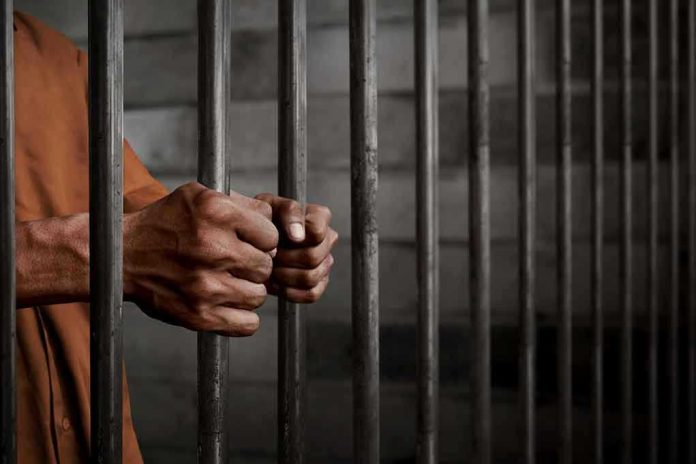
A notorious killer’s complaints about prison harassment raise questions about justice and inmate safety.
Story Highlights
- Bryan Kohberger, convicted of murdering four students, files complaints about prison harassment.
- He alleges verbal threats and disruptive behavior from fellow inmates.
- The case continues to draw public and media attention.
- Concerns arise over prison conditions for high-profile convicts.
Kohberger’s Prison Complaints
Bryan Kohberger, the criminology student convicted for the brutal murders of four University of Idaho students, has filed formal complaints about his treatment in prison. According to Kohberger, he faces “minute-by-minute” verbal threats and harassment from fellow inmates. Additionally, he reports disruptive behaviors such as cell flooding with toilet water, which exacerbate his unsafe living conditions.
Since his conviction, Kohberger has become a focal point in discussions about inmate safety, especially for high-profile prisoners. The notoriety of his case, compounded by his criminology background, has kept public and media scrutiny high. As prison officials investigate his complaints, the broader implications for corrections policies are being considered.
Background of the Case
The Kohberger case began on November 13, 2022, when four students were tragically murdered in Moscow, Idaho. Kohberger, then a doctoral student in criminology, was linked to the crime scene through DNA evidence found on a knife sheath. After his arrest in December 2022 and subsequent extradition to Idaho, he was sentenced to life without parole in July 2025.
Kohberger’s trial and conviction drew significant media attention, not only due to the crime’s brutality but also because of his academic background. His recent complaints about prison conditions have only added another layer of complexity to the ongoing narrative surrounding his case.
Implications and Reactions
Kohberger’s allegations have sparked debates about the treatment of notorious inmates and their rights within the correctional system. Short-term impacts include increased scrutiny of prison conditions and safety protocols, particularly for inmates with high media visibility. Long-term, there may be calls for policy reviews to ensure the humane treatment of all prisoners, regardless of their criminal background.
The families of Kohberger’s victims continue to seek justice and closure, often finding themselves caught between their grief and the ongoing media focus on Kohberger’s complaints. Their varied responses to the plea deal and sentencing reflect the broader societal discussions about justice and rehabilitation.
#BryanKohberger is complaining to prison guards that other inmates are threatening to sexually assault him.
He is pleading for a transfer to another wing of the prison, according to a new report.
— Psychic Carla Baron (@Carla_Baron) August 21, 2025
As the case progresses, it remains a touchstone for discussions about crime, punishment, and the balance between ensuring safety and upholding the rights of even the most notorious criminals. The legal and corrections sectors may face increased pressure to address these complex issues with transparency and accountability.
Sources:
ABC News: Idaho College Murders Timeline of Events
CBS News: Bryan Kohberger Police Documents and Incidents
OPB: Washington State Grad Student Pleads Guilty
6ABC: Bryan Kohberger’s Behavior Before Murders



